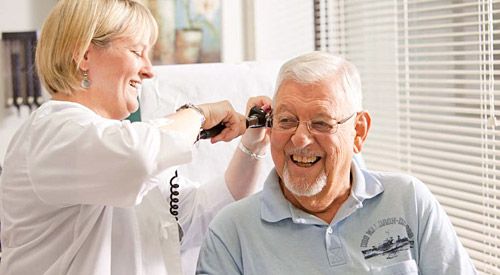PTSD is a very real cognitive disease that requires proper psychological diagnosis. It was originally thought to be a type of anxiety disorder but has since been re-categorized into its own disorder field, Trauma and Stress related disorders, which then lead to the streamlined PTSD Treatment program we have today. This disease gained notoriety after the first Gulf War and since has gain a sort of stigma since it is attached to an external event. To identify whether or not someone maybe suffering from this mentally crippling condition there are certain symptom clusters to look for. Here is a list of the five Post Traumatic Stress Syndrome specific symptoms:

- These dreams are very common for people who have gone through a traumatic experience than those who have not. Nightmares in adults are typically connected to an ongoing stress or thought. For example, some Veterans who have experienced combat during their service can have nightmares about ground war. Although the nightmare seems to be related to an event, it’s the extraordinary feelings that are familiar.
- Anger has a wide range from annoyed to rage. People become angry for some many reasons daily, but for a Veteran with PTSD, it is completely different. Some Veterans with PTSD are more likely to feel rage in everyday life because of traumatic events from past military circumstances, like combat, sexual or physical abuse, injury, or the loss of another soldier right in front of them.
- Loss of the ability to concentrate. Some Veterans with PTSD difficulty concentrating because of their disease. People don’t understand the difficulties the patient has with concentrating and may assume he/she is not trying too or doesn’t care. This lack of understanding exacerbates the anger piece of this psychological puzzle
- Bad habits, drinking, and drugs. It starts with a sleeping pill or pain medication from an injury on the field or a drink with friends you haven’t seen in a while. The pills help us sleep or the alcohol makes you forget, however, you start affecting your health and interfering with your relationship.
- Contemplating suicide. The most desperate part of this disease is the depression that can lead to thoughts of suicide. Some Veterans’ depression may not show up until a traumatic and major setback such as a divorce or job loss sets it into motion. The thought is that is not life is not bearable anymore.
The first step in treating PTSD is an appointment with the internal medicine doctor. The medical doctor will then write a referral for the psychologist who will perform a series of standard screenings. Once it is determined there is PTSD, the goal is to narrow down how severe the disease is and a treatment plan. Ultimately, the plan will involve medication which will help the patient to control almost all of the symptoms. This disease is a lifetime sentence, but with the proper treatment is manageable with doctors care and family support it can be done.
